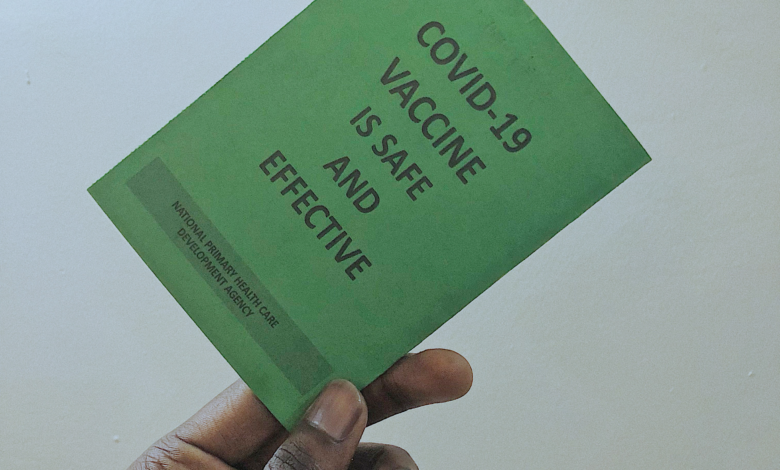By Ogar Monday
As new cases of the COVID-19 continue to rise in Asia and part of North America, the Nigeria Government is responding by amending its travel policies to ensure the safety of both travellers and residents in the country.
One of such strategies the government have announced is that all travellers into the country must show evidence of COVID-19 vaccination by presenting their vaccination cards.
The country said that up until January 25, 2023, the total number of eligible persons targeted for COVID-19 vaccination across the country is 65,679,094. Meanwhile, 11,780,959 persons targeted for Covid-19 vaccination have been partially vaccinated.
Losing the vaccination card can be a frustrating and stressful experience, but it is important to know that it can be replaced. If you have lost your COVID-19 vaccination card, here are a few steps to get a new one.
Step 1:
You will need to visit the vaccination site where you received your first dose of the vaccine. When you arrive, you should bring a police report or affidavit that includes the following information:
* Your first name.
* Your middle name (if applicable).
* Your last name.
* Your date of birth (DOB).
* The phone number you used during registration.
* Your vaccination ID (if you have it).
* The date of your first dose (if you know it).
* The date of your second dose (if you have taken it).
* A photo of your lost card (if you have one).
Step 2
Provide the information above to the staff at the health facility or the vaccination site, who will then check your records either in their physical register or on the EMID portal, a vaccination verification portal where one can confirm their vaccination status by providing their vaccination ID.
Step 3
Once the health worker confirms your information, a new card will be issued immediately. It’s important to know that you must visit the same vaccination site where you took your first dose.
Conclusion
COVID-19 is still around, and vaccines are the chief mitigation against it. Keeping proof of your vaccination card can save you a lot of trouble.
The researcher produced this fact-check per the DUBAWA 2023 Kwame KariKari Fellowship partnership with CrossRiverWatch to facilitate the ethos of “truth” in journalism and enhance media literacy in the country.

Leave feedback about this